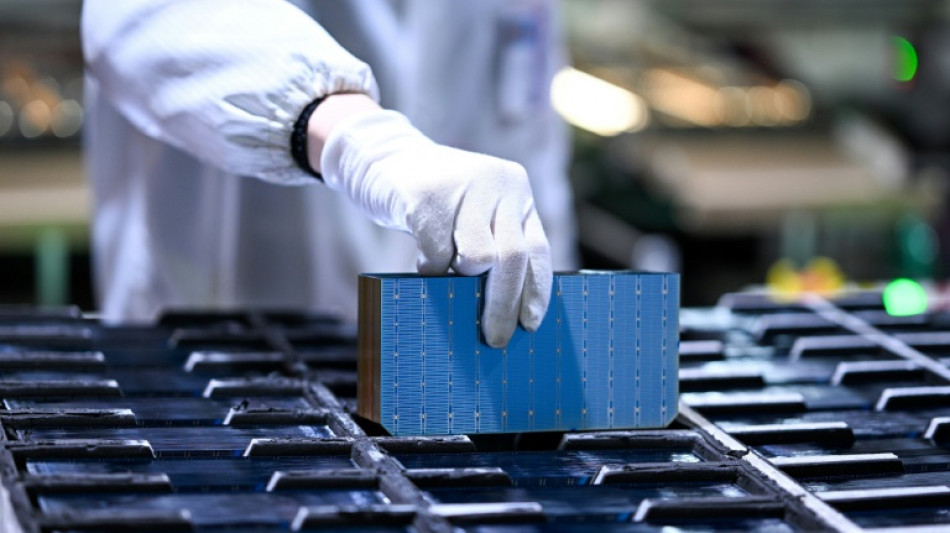
-
 Vance and Lammy talk Gaza, fish as US VP starts UK holiday
Vance and Lammy talk Gaza, fish as US VP starts UK holiday
-
Israel plans to 'take control' of Gaza City, sparking wave of criticism

-
 Putin taps key allies ahead of Trump summit, sanctions deadline
Putin taps key allies ahead of Trump summit, sanctions deadline
-
Two tourists die, fires erupt in Greece amid gale-force winds

-
 Lens sign France international Thauvin from Udinese
Lens sign France international Thauvin from Udinese
-
Gold futures hit record on US tariff shock, stocks wobble

-
 Man Utd training ground upgrade will foster 'winning culture': Ratcliffe
Man Utd training ground upgrade will foster 'winning culture': Ratcliffe
-
Two tourists die at sea in Greece amid gale-force winds

-
 'Optimistic': Champagne growers hope for US tariff shift
'Optimistic': Champagne growers hope for US tariff shift
-
French firefighters optimistic after controlling vast wildfire
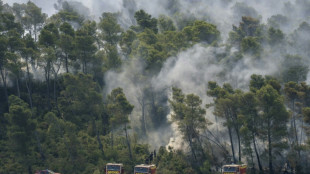
-
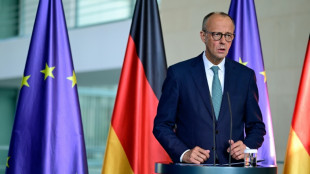 Germany suspends arms exports to Israel for use in Gaza
Germany suspends arms exports to Israel for use in Gaza
-
Stocks waver, gold futures hit record on US tariff updates

-
 Guessand says he jumped at chance to join Aston Villa after sealing move
Guessand says he jumped at chance to join Aston Villa after sealing move
-
Israel to 'take control' of Gaza City, sparking wave of criticism
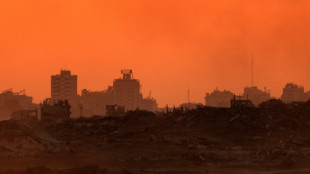
-
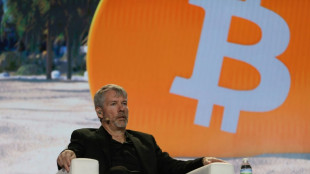 Accumulating bitcoin a risky digital rush by companies?
Accumulating bitcoin a risky digital rush by companies?
-
Liverpool's Slot hints at fresh Isak bid despite 'attacking power'

-
 PSG to sign Lille goalkeeper Lucas Chevalier: source
PSG to sign Lille goalkeeper Lucas Chevalier: source
-
Oil industry presence surges at UN plastic talks: NGOs
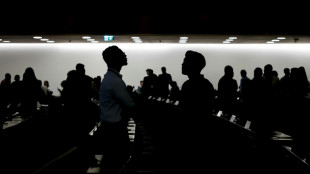
-
 Kipyegon says a woman will run a sub-four minute mile
Kipyegon says a woman will run a sub-four minute mile
-
Tokyo soars on trade deal relief as most Asian markets limp into weekend
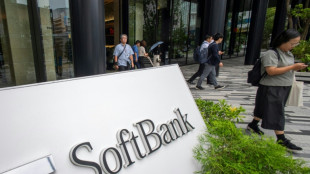
-
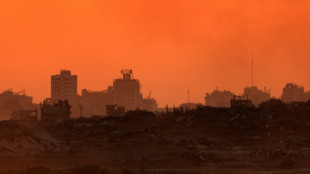 Israel to 'take control' of Gaza City after approving new war plan
Israel to 'take control' of Gaza City after approving new war plan
-
Australian A-League side Western United stripped of licence

-
 'Back home': family who fled front buried after Kyiv strike
'Back home': family who fled front buried after Kyiv strike
-
Indonesia cracks down on pirate protest flag

-
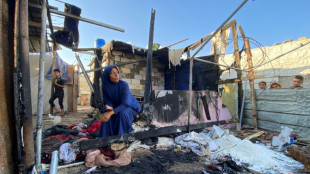 Israeli army will 'take control' of Gaza City: PM's office
Israeli army will 'take control' of Gaza City: PM's office
-
Australian mushroom murderer accused of poisoning husband

-
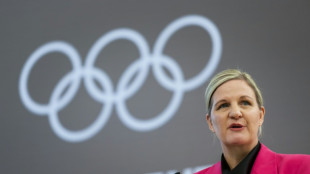 Coventry's mettle tested by Russian Olympic debate, say former IOC figures
Coventry's mettle tested by Russian Olympic debate, say former IOC figures
-
Library user borrows rare Chinese artwork, returns fakes: US officials

-
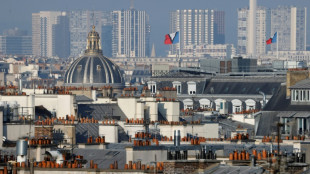 Parisians hot under the collar over A/C in apartments
Parisians hot under the collar over A/C in apartments
-
Crypto group reportedly says it planned sex toy tosses at WNBA games

-
 American Shelton tops Khachanov to win first ATP Masters title in Toronto
American Shelton tops Khachanov to win first ATP Masters title in Toronto
-
Tokyo soars on trade deal relief as Asian markets limp into weekend
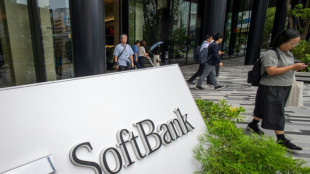
-
 New species teem in Cambodia's threatened karst
New species teem in Cambodia's threatened karst
-
Australian mushroom murderer accused of poisoning husband: police

-
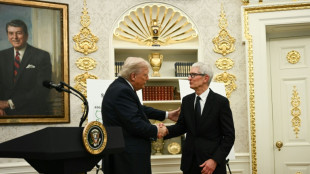 Solid gold, royal missives and Nobel noms: how to win Trump over
Solid gold, royal missives and Nobel noms: how to win Trump over
-
Canadian teen Mboko outlasts Osaka to win WTA Montreal crown

-
 Trump to host Armenia, Azerbaijan for historic 'Peace Signing'
Trump to host Armenia, Azerbaijan for historic 'Peace Signing'
-
Israeli airline's Paris offices daubed with red paint, slogans

-
 US raises bounty on Venezuela's Maduro to $50 mn
US raises bounty on Venezuela's Maduro to $50 mn
-
Lebanon cabinet meets again on Hezbollah disarmament

-
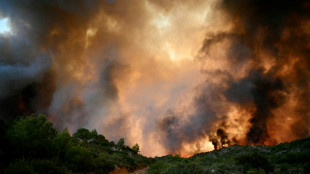 France's huge wildfire will burn for days: authorities
France's huge wildfire will burn for days: authorities
-
Bolivia right-wing presidential hopeful vows 'radical change'

-
 Trump says would meet Putin without Zelensky sit-down
Trump says would meet Putin without Zelensky sit-down
-
Trump offers data to justify firing of labor stats chief
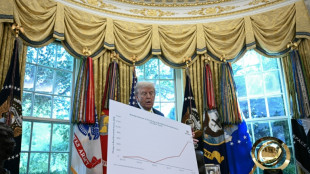
-
 Bhatia leads by one at PGA St. Jude, Scheffler five adrift
Bhatia leads by one at PGA St. Jude, Scheffler five adrift
-
Disney settles Trump-supporting 'Star Wars' actor lawsuit

-
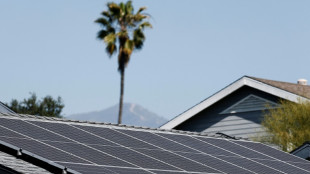 Trump moves to kill $7 billion in solar panel grants
Trump moves to kill $7 billion in solar panel grants
-
Venus Williams falls at first hurdle in Cincinnati

-
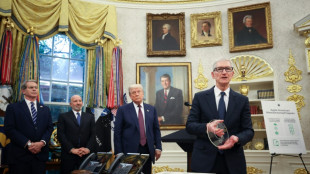 Mixed day for global stocks as latest Trump levies take effect
Mixed day for global stocks as latest Trump levies take effect
-
SpaceX agrees to take Italian experiments to Mars
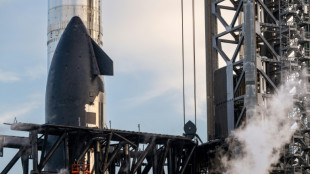
| RBGPF | -5.79% | 71.84 | $ | |
| AZN | -0.89% | 73.4 | $ | |
| CMSC | 0.13% | 22.99 | $ | |
| BTI | 0.69% | 57.085 | $ | |
| RIO | 1.35% | 61.6 | $ | |
| CMSD | -0.13% | 23.49 | $ | |
| NGG | -0.91% | 71.43 | $ | |
| SCS | -0.63% | 15.9 | $ | |
| BP | -0.15% | 34.14 | $ | |
| SCU | 0% | 12.72 | $ | |
| RYCEF | -0.35% | 14.4 | $ | |
| GSK | 0.78% | 37.875 | $ | |
| RELX | -1.93% | 48.13 | $ | |
| BCC | -0.65% | 82.655 | $ | |
| VOD | 1.01% | 11.375 | $ | |
| BCE | 2.8% | 24.465 | $ | |
| JRI | 0.15% | 13.43 | $ |

US solar tariffs could drive Asia transition boom
Massive planned US duties on solar panels made in Southeast Asia could be a chance for the region to ramp up its own long-stalled energy transition, experts say.
Earlier this month, Washington announced plans for hefty duties on solar panels made in Cambodia, Vietnam, Thailand and Malaysia.
The levies follow an investigation, launched before US President Donald Trump took office, into "unfair practices" in the countries, particularly by Chinese-headquartered firms.
If approved next month, they will pile upon tariffs already imposed by the Trump administration, including blanket 10-percent levies for most countries, and 145 percent on Chinese-made goods.
For the US market, the consequences are likely to be severe. China makes eight out of every 10 solar panels globally, and controls 80 percent of every stage of the manufacturing process.
The new tariffs "will practically make solar exports to US impossible commercially", said Putra Adhiguna, managing director at the Energy Shift Institute think tank.
Southeast Asia accounted for nearly 80 percent of US solar panel imports in 2024.
And while investment in solar production has ramped up in the United States in recent years, the market still relies heavily on imported components.
For Chinese manufacturers, already dealing with a saturated domestic market, the raft of tariffs is potentially very bad news.
Many shifted operations to Southeast Asia hoping to avoid punitive measures imposed by Washington and the European Union as they try to protect and nurture domestic solar industries.
The proposed new duties range from around 40 percent for some Malaysian exports to an eye-watering 3,521 percent for some Cambodia-based manufacturers.
- Tariffs 'accelerate' transition -
But there may be a silver lining for the region, explained Ben McCarron, managing director at Asia Research & Engagement.
"The tariffs and trade war are likely to accelerate the energy transition in Southeast Asia," he said.
China will "supercharge efforts" in regional markets and push for policy and implementation plans to "enable fast adoption of green energy across the region", driven by its exporters.
Analysts have long warned that countries in the region are moving too slowly to transition from planet-warming fossil fuels like coal.
"At the current pace, it (Southeast Asia) risks missing out on the opportunities provided by the declining costs of wind and solar, now cheaper than fossil fuels," said energy think tank Ember in a report last year.
For example, Malaysia relied on fossil fuels for over 80 percent of its electricity generation last year.
It aims to generate 24 percent from renewables by 2030, a target that has been criticised as out of step with global climate goals.
The tariff regime represents a double opportunity for the region, explained Muyi Yang, senior energy analyst at Ember.
So far, the local solar industry has been "largely opportunistic, focused on leveraging domestic resources or labour advantages for export gains", he told AFP.
Cut off from the US market, it could instead focus on local energy transitions, speeding green energy uptake locally and driving a new market that "could serve as a natural hedge against external volatility".
Still, replacing the US market will not be easy, given its size and the relatively nascent state of renewables in the region.
"Success hinges on turning this export-led momentum into a homegrown cleantech revolution," said Yang.
"Clearance prices" may be attractive to some, but countries in the region and beyond may also be cautious about a flood of solar, said Adhiguna.
Major markets like Indonesia and India already have measures in place intended to favour domestic solar production.
"Many will hesitate to import massively, prioritising trade balance and aims to create local green jobs," he said.
X.AbuJaber--SF-PST
